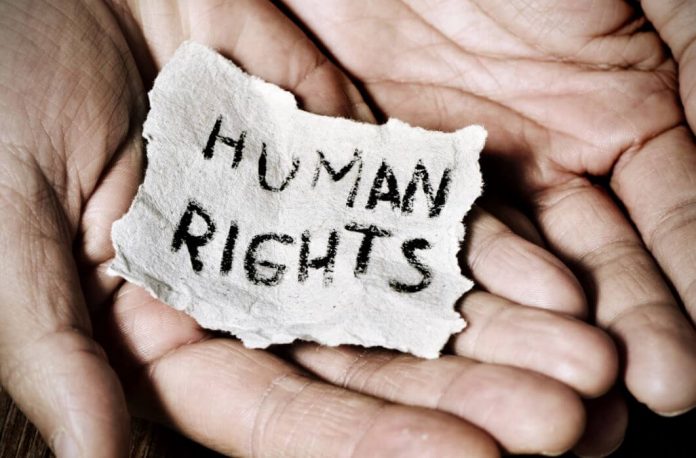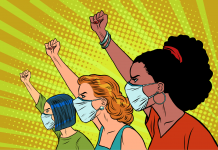This article is written by Ishan Arun Mudbidri, from Marathwada Mitra Mandal’s Shankarrao Chavan Law College, Pune. This article talks about NGOs and human rights issues in modern times and the impact these organisations have on the protection of human rights.
Table of Contents
Introduction
“To deny people their human rights is to challenge their very humanity”
-Nelson Mandela
Human rights are necessary for the survival of mankind. These rights protect our right to freedom, right to life and liberty, freedom from slavery and torture, etc. These are universally accepted principles governed by International law. However, there seems to remain a gap between actual acceptance of these rights and laws which mention them. Weaker sections of the society many times cannot cope with the existing legal structure on human rights. Hence, this is where Non-Governmental Organisations (NGOs) intervene.
What are NGOs
The NGO sector is developing rapidly across the globe. What started as a cure to tackle poverty, illiteracy, and other social evils today has extended to global trade, finance, the environment, and building international relations. So what are NGOs? NGOs in simple words are organisations that think beyond money or financial profit and work towards helping people grow. A very well-defined meaning of the term NGO is given by the World Bank as, private organisations which conduct activities to promote the interests of the poor, provide social services, and undertake community development. According to the NGO Advisor’s 2021 statistics, the Bangladesh Rehabilitation Assistance Committee, also known as (BRAC) an NGO placed in Dhaka Bangladesh was voted the best NGO in the world. Among the much-appreciated work done by the BRAC, providing aid to the Rohingya, at a time when the world is fighting for solutions against the humanitarian crisis, stood out. This was just one example of the tremendous work these NGOs do, and across the globe, the number of NGOs is also increasing. As more NGOs have entered the frame, their scope as mentioned above has also grown wide.
Lending a hand in international trade
Certain NGOs around the world have entered into international trade. The World Trade Organisation also has readily accepted the participation of NGOs in world trade issues and debates. The Public Forum, which is the WTO’s largest outreach event, gives an opportunity for various organisations to publicly debate on trade issues across the globe. Various NGOs have participated in this event since 2001 and given their views. Further, Article 5(2) of the Marrakesh Agreement states that the General Council of the WTO shall consult and cooperate with the Non-governmental organisations on matters related to the organisation. Hence, due to strong relations with the WTO, various NGOs have widened their scope to international trade including, Action Aid International, Consumers International, Evian Group, etc.
Helping in environmental protection
A well-established NGO in the vicinity can be of huge help to the environment. Raising environmental issues in the society, creating awareness among the public, conducting timely research on various environmental aspects and reporting it, protecting the wildlife, etc. are some of the work which environmental NGOs do. Increased awareness regarding environmental protection can be seen amongst the youth. An example of this is Greta Thunberg, an 18-year-old environmental activist whose School Strike for Climate movement has been lauded around the world. Some of the biggest environmental NGOs around the world include The World Wildlife Fund, Greenpeace, Friends of the Earth, and Natural Resources Defence Council.
How are NGOs financed
NGOs work for the betterment of the society and not for monetary requirements. However, to run the organisation, funding becomes pretty obvious. The majority of NGOs depend on common sources of funding like subscription, donation, membership fees, etc. Other sources include aid from international organisations like The UN, World Bank, International Monetary Fund, and at times grant-in-aid by the government.
Legal status
International law does not mention the legality of NGOs. However, as NGOs are spread out in many countries, national laws do regulate NGOs as legal entities. For example, in India NGOs come under the purview of different legal enactments like the Income Tax Act 1961, the Societies Registration Act 1860, the Companies Act 2013, and the Public Trust Acts of that particular state. Giving a universal legal recognition to the NGOs under international law is necessary because this will ensure the participation of more NGOs in the administration and their decision-making process, which will, in turn, help the political leadership of the country. Further, people will also start trusting these organisations more and will take help from them.
Human rights activism
Despite there being documents imposing individual rights like The Magna Carta(1215), The English Bill of Rights(1689), The French Declaration on Rights of Man and Citizen(1789), and the US Constitution on Bill of Rights(1791), it took two devastating World Wars for the people to actually believe human rights should be brought up as an issue on the World stage.
The birth of the United Nations in 1945, was a step to recognize human rights issues around the world. UN member states pledged to establish and promote human rights to all. Further, in 1948, the UN adopted the Universal Declaration of Human Rights with a vote from a majority of 56 member nations. Its main concern was the recognition of human rights on the global stage. The preamble of the UDHR itself mentions, recognizing equal rights to all members of a family is needed for maintaining freedom and peace in the world.
Human rights covenants and conventions
Keeping in mind the principles of the UDHR, various covenants and conventions were established. The European Convention on Human Rights was adopted in 1950 by 40 European nations including the United Kingdom. The main objective of this convention was to ensure the protection of human rights in Europe. Further, the UN drafted the International Bill of Rights which included two treaties namely, the International Covenant on Civil and Political Rights (ICCPR), and the International Covenant on Economic, Social, and Cultural Rights (ICESCR). Both these covenants focus on giving basic rights like food, shelter, education, freedom of speech, religion. In addition to this, the UN has adopted other conventions for social evils like child abuse, genocides, refugees, etc. which include the Convention Relating to the Status of Refugees, 1951, the Convention on the Elimination of All Forms of Discrimination against Women, 1979, the Convention on the Rights of the Child, 1989.
Important human rights issues around the world in recent times
Despite there being steps taken for ensuring human rights across the globe, human rights violations have been eminent.
Rohingya crisis
“The world must never forget the one million Rohingya from Myanmar”, quite rightly stated by UN human rights expert Tom Andrews after his recent visit to Bangladesh. Bangladesh, the same country where a large number of a Muslim minority group called the Rohingyas fled to from their home country Myanmar, back in 2017. This was due to a genocidal attack on the community done by the military. Currently, these Rohingya are staying in overcrowded refugee camps in Bangladesh. Denied Myanmar citizenship numerous times, these people are stateless, homeless, without freedom of movement, and basic necessities. This crisis has posed a lot of questions on human rights to world leaders and continues to do so.
Afghanistan takeover
The Taliban captured Afghanistan a couple of months back. What was promised as a truce by the Taliban, ended up becoming human rights violations. The extrajudicial killings, injustice against Afghan women and children, all call for a serious humanitarian issue to which no one seems to have an answer.
Ethiopian crisis
Political disagreements for a long time led to infighting between the rebel forces in the Tigray region which is the northern part of Ethiopia and Prime Minister Abiy Ahmed’s military. Further, there were reports of sexual violence and torture against Ethiopian women and children. The rebel forces in Tigray are opposing the reforms started by the PM, leading to an all-out offensive in the country.
Uighur Muslims issue in China
Xinjiang province, a north-west region in China is where the Muslim minority group Uighurs reside. The Chinese administration has been detaining Uighurs in camps close to the north-west province. Various allegations of rape, torture, forced sterlizations have emerged against the Chinese. Various countries including the US, UK, Canada, and the European Union have imposed sanctions against Chinese officials orchestrating these human rights abuses. However, the Chinese have denied such allegations and have imposed sanctions of their own on European officials. Amidst all this drama, the Uighurs continue to suffer.
Role of NGOs in protection of human rights
As mentioned above, the scope of NGOs has widened. The Vienna Conference in 1993 conducted by the United Nations, which was attended by roughly around 840 NGOs around the world, pledged for a combined human rights mission. Human rights NGOs work towards the betterment of humanity and help in providing assistance to victims suffering from human rights violations, collecting information on persons violating human rights and reporting the same to various agencies, spreading awareness, and educating about the importance of human rights. In 2007, the United Nations established the Human Rights Council for the protection of human rights around the world. NGOs played an important role by participating in various discussions of the Council. They were instrumental in bringing to the notice of the Council various human rights violations around the world, suggesting different kinds of solutions, and approving certain resolutions. They have been key for putting pressure on their respective governments as well as the UN organs for the protection of human rights above all.
Amnesty International
Amnesty International is one of the biggest human rights NGOs in the world. Founded in 1961, this organisation has been pivotal in promoting the protection of human rights around the world. AI has exposed human rights violations by governments, armed militias, political groups, etc. the AI strictly adheres to the principles mentioned in the UDHR and ensures that they are followed. In 1977, Amnesty International was awarded the Nobel Peace Prize. Recent projects taken by the organization include ensuring human rights are not violated in Israel and Palestine-occupied areas, pressing for an international investigation into last year’s Beirut explosion in Lebanon, providing humanitarian aid to war-torn Syria, helping with COVID-19 relief work, ensuring LGBTQ equality, and sexual reproductive rights around the world.
Impact in India
International Human Rights Day is celebrated on 10th December around the world with the aim of creating awareness among people about these rights. Kailash Satyarthi, an Indian human rights activist, won the Nobel Peace Prize in 2014 for his efforts against child trafficking and exploitation. However, in India the scenario on human rights is tense. Various human rights issues like extrajudicial killings, rape, domestic violence, custodial deaths, etc. still prevail. In 2019, the National Campaign against torture reported around 125 custodial deaths in India. Further, the South Asian Terrorism Portal reported deaths of 63 civilians due to terrorism and insurgency in Kashmir and Maoist hit areas. The COVID-19 pandemic ravaged the country, the Commonwealth Human Rights Initiative in India reported 15 casualties during the nationwide lockdown due to police beatings. The political leadership has time and again ensured to address human rights issues at all levels of the country, but there seems to be no avail. However, human rights NGOs have played an important role in providing aid to those suffering from human rights violations. Mentioned below are some of the top human rights-based NGOs doing a phenomenal job in India:-
Milaan Foundation
Milaan Foundation is an NGO that basically works towards empowering small girls across the country. This organisation ensures underprivileged girls get all the basic requirements and proper training to stand up for themselves in the future. Till now, the organisation has worked and helped around 40,000 children in the country.
Child In Need Institute
Child in need institute is a non-profit organisation registered under the Societies Registration Act,1860 in India. This organisation works towards the betterment of poor children in the country. The main motive is to break the chain of social issues like poverty, illiteracy, unemployment amongst the underprivileged in the country.
Acid Survivors Sahaas Foundation
The Acid Survivors Sahaas Foundation provides treatment to acid-attack victims. It also ensures employment and other assistance. This NGO is based in Mumbai and provides aid to around 50 acid-attacks victims across four states in the country.
Committee for Legal Aid to the Poor(CLAP)
The CLAP works towards providing legal assistance to the poor. It works towards protecting human rights through the process of law.
Conclusion
The legal status of NGOs in international law is not yet clear. Still, NGOs across the world are doing a great job in protecting the environment, building international relations by helping various UN organisations, helping the economy prosper, and last but not the least, the protection of human rights. Human rights violations tend to occur at an alarming rate and NGOs provide for an important and effective defence mechanism against this.
References
- http://hrlibrary.umn.edu/edumat/hreduseries/hereandnow/Part-1/short-history.htm
- http://www.lawyr.it/index.php/articles/international-focus/1374-the-role-of-non-governmental-organisations-in-international-economic-law
- https://www.coe.int/en/web/compass/human-rights-activism-and-the-role-of-ngos
- https://www.ngoadvisor.net/ong/brac
Students of Lawsikho courses regularly produce writing assignments and work on practical exercises as a part of their coursework and develop themselves in real-life practical skills.
LawSikho has created a telegram group for exchanging legal knowledge, referrals, and various opportunities. You can click on this link and join:
Follow us on Instagram and subscribe to our YouTube channel for more amazing legal content.
 Serato DJ Crack 2025Serato DJ PRO Crack
Serato DJ Crack 2025Serato DJ PRO Crack










 Allow notifications
Allow notifications


